Who are the six co-conspirators in Trump's latest indictment?
- Published
Watch: 'This indictment is staggering' - a 90-second explainer
There are six unnamed co-conspirators in the latest indictment against former President Donald Trump, including a Department of Justice official, four attorneys and a political consultant.
They have not been named by prosecutors because they are not charged with a crime, but quotes, anecdotes and other context in charging documents and previous investigations have allowed most to be identified.
Prosecutors say the group worked together and with Mr Trump to overturn the election result by pushing officials to ignore the vote count, to disenfranchise millions of voters and to replace legitimate electors with fake ones.
Rudy Giuliani
The former New York mayor and lawyer for Mr Trump played a very public role in the aftermath of the election when he toured the US speaking to Republican legislatures in states Mr Trump lost about unfounded claims of widespread election fraud.
Mr Giuliani is described in the indictment as "Co-Conspirator 1". Without using his name, it says he is a lawyer "who was willing to spread knowingly false claims and pursue strategies" that Mr Trump's campaign did not pursue itself.
Watch: Trump charged with conspiracy to defraud US
The charging document references meetings, testimony to lawmakers and political events that have previously been attributed to Mr Giuliani.
Ted Goodman, a spokesman for Mr Giuliani, said that it "appears" the indictment is referring to Mr Giuliani, and accused the prosecution of violating the First Amendment right to free speech.
John Eastman
Co-Conspirator 2 has been identified as John Eastman, a White House lawyer who helped develop the Trump team's plan to invalidate the election result and instead choose a slate of "fake electors" to keep Mr Trump in power.
He is described in the indictment as the man "who devised and attempted to implement a strategy to leverage the Vice-President's ceremonial role overseeing the certification proceeding to obstruct the certification of the presidential election".
Vice-President Mike Pence resisted pressure from Mr Trump to try to halt Joe Biden's certification on 6 January 2021, leading rioters inside the US Capitol to chant calls for Mr Pence to be hanged.
Mr Eastman's lawyer Charles Burnham said in a statement that the new indictment used a "misleading presentation of the record to contrive criminal charges against Presidential candidate Trump and to cast ominous aspersions on his close advisors".
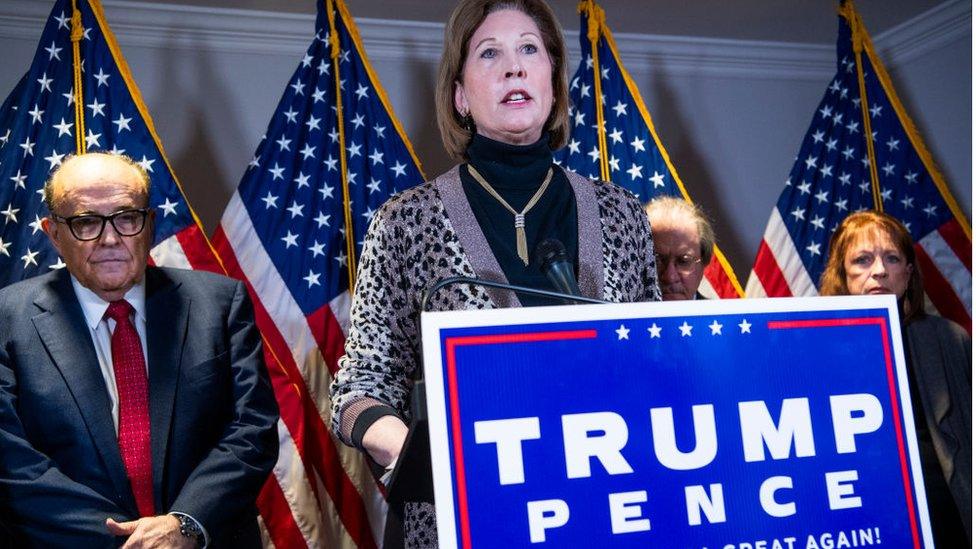
Sidney Powell with Rudy Giuliani (left)
Sidney Powell
Most known for her vow to "release the Kraken" after Mr Trump's defeat, Sidney Powell is a lawyer that embraced the unfounded theory that that the election had not been conducted fairly.
The indictment describes Co-Conspirator 3 as "an attorney whose unfounded claims of election fraud the Defendant [Mr Trump] privately acknowledged to others sounded 'crazy'".
It goes on to say that Mr Trump, despite describing her views as crazy, "embraced and publicly amplified" her disinformation.
Mrs Powell spoke publicly about a lawsuit she filed against Georgia's governor, which is mentioned in the indictment.
In testimony to the congressional committee examining the 6 January riot, Mrs Powell said she did not review all of the many claims of election fraud she made, telling them that "no reasonable person" would view her claims as fact. Neither she nor her representatives have commented.
Watch dramatic footage of police under attack at the Capitol riot
Jeffrey Clark
Co-Conspirator 4 is described by prosecutors as a Department of Justice (DOJ) lawyer who tried to "use the Justice Department to open sham election crime investigations and influence state legislatures with knowingly false claims of election fraud".
It says the person "worked on civil matters" at the DOJ, making it clear that it is Jeffrey Clark, who Mr Trump named as acting head of the Justice Department Civil Division weeks before the election.
The indictment says he met secretly with Mr Trump several times in the days before the 6 January riot, and "tried to coerce" top DOJ officials to sign a letter falsely declaring that voting irregularities had been discovered in multiple states.
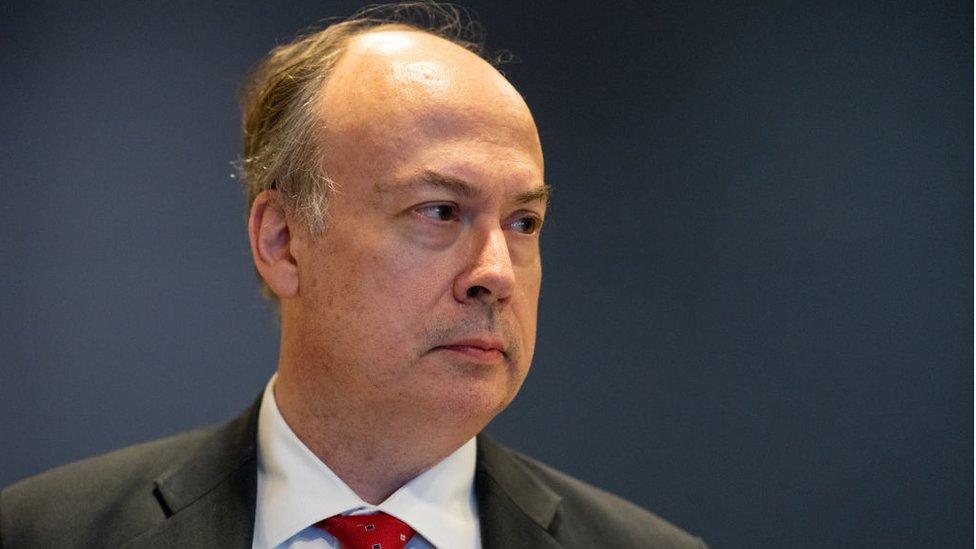
Jeffrey Clark speaking to a congressional committee
Mr Trump even considered appointing him as acting attorney general, the indictment says, but abandoned the plan on 3 January 2021 after DOJ officials threatened to resign en masse.
After one DOJ official said there would be "riots in every major city in the United States" if Mr Trump did not leave office after Joe Biden's inauguration, the person responded: "That's why there's an Insurrection Act."
He has not commented to media on the reports.
Kenneth Chesebro
The indictment calls Co-Conspirator 5 "an attorney who assisted in devising and attempting to implement a plan to submit fraudulent slates of presidential electors to obstruct the certification proceeding".
Mr Chesebro is an appellate lawyer who first became involved in the Trump campaign's post-election efforts in Wisconsin before expanding into other states lost by Mr Trump.
The indictment cites a memo by the fourth co-conspirator in which they present a plan to send a slate of fake electors to Washington for Congress to approve.
He has not commented on the reports.
Co-conspirator six - a political consultant
The identity of co-conspirator six remains unclear.
The indictment describes the person as a "political consultant who helped implement a plan to submit fraudulent slates of presidential electors to obstruct the certification proceeding".
It says the person worked to identify lawyers that could aid the Trump campaign in six swing states, and on the night of the riot, tried to find senators' phone numbers for Mr Giuliani to call in an attempt to delay the election certification.

Sign up for our morning newsletter and get BBC News in your inbox.

- Published2 August 2023
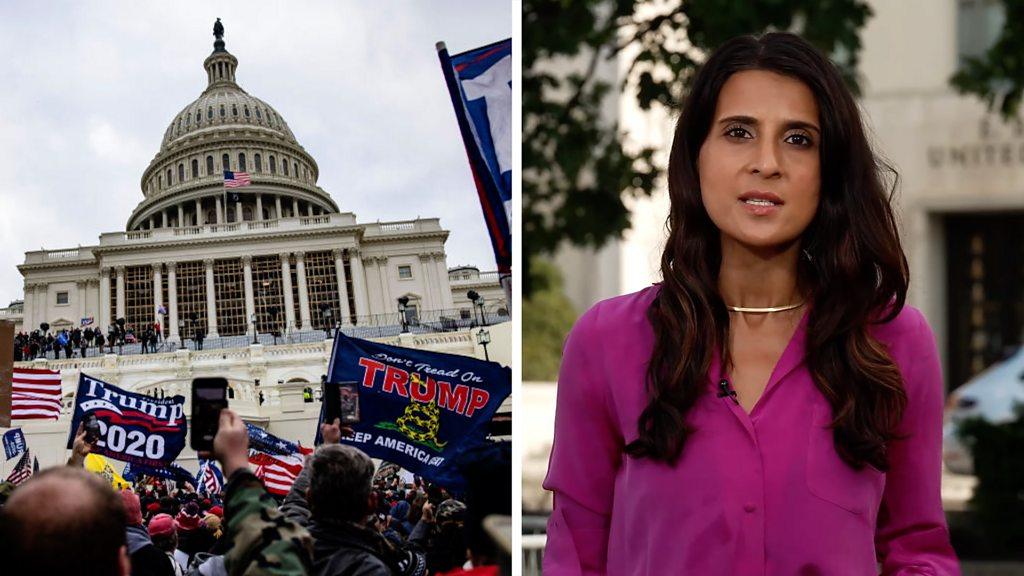
- Published2 August 2023
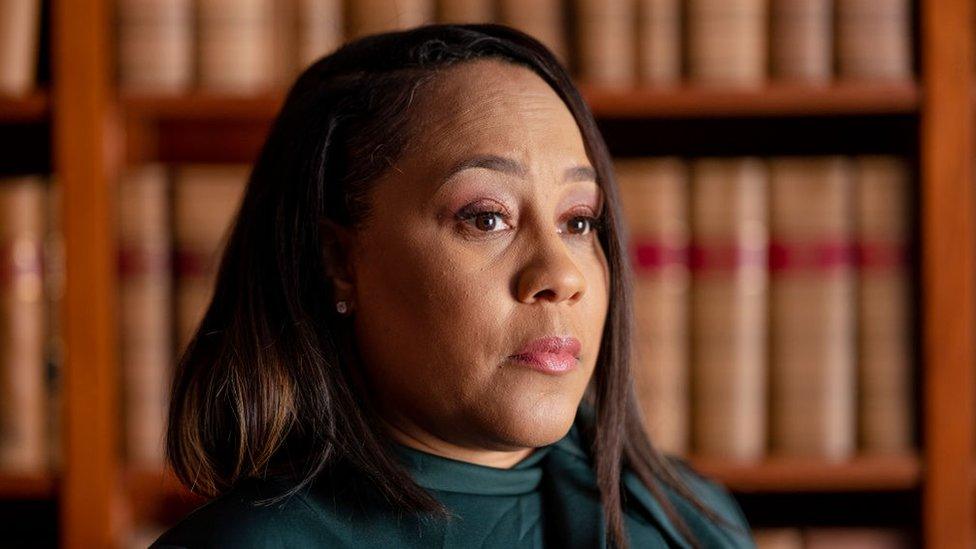
- Published2 August 2023
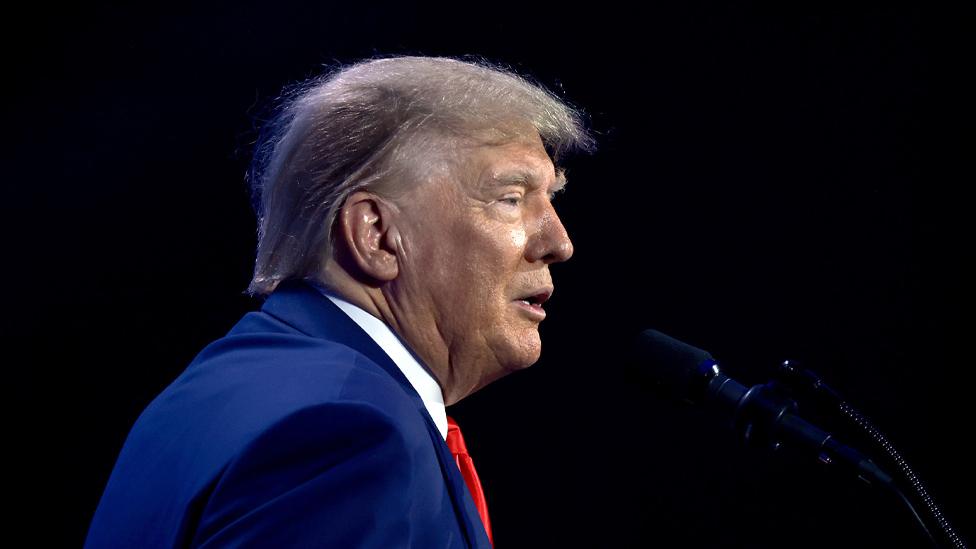
- Published15 July 2024
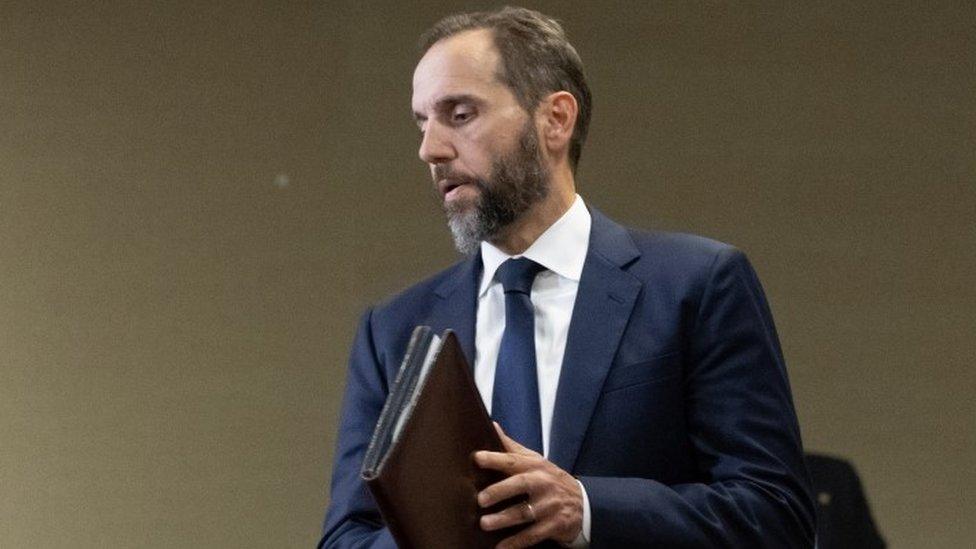
- Published2 August 2023